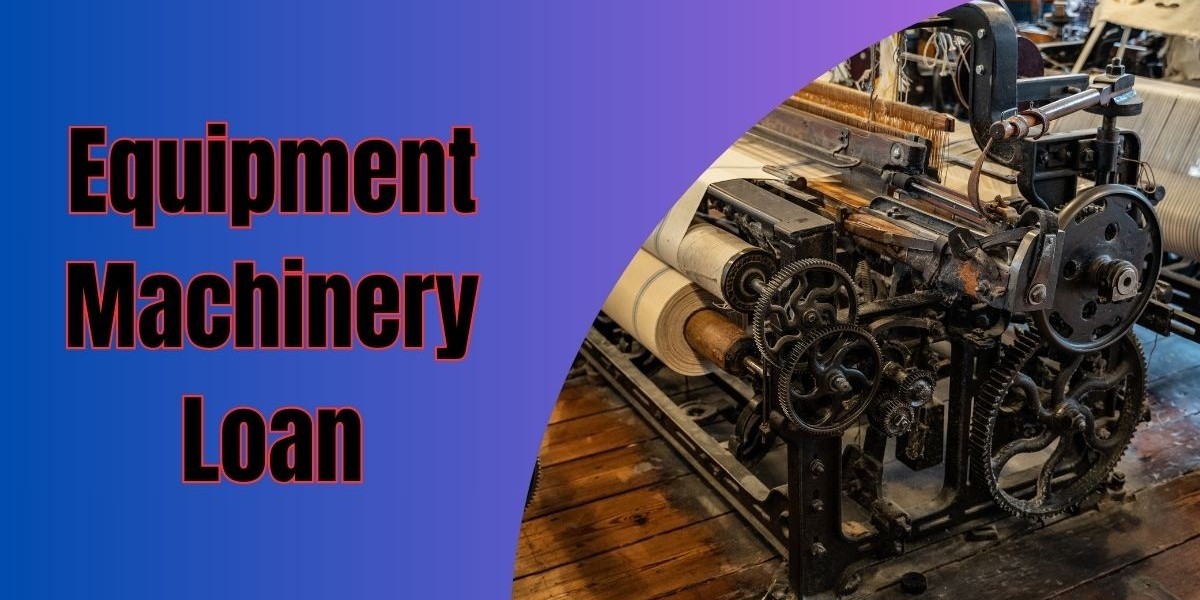For businesses operating in manufacturing, construction, and other industrial sectors, maintaining up-to-date and efficient equipment is crucial to staying competitive and meeting production demands.
However, the cost of acquiring or upgrading factory equipment can be a significant financial burden.
This is where business equipment loans come into play, offering manufacturers the opportunity to invest in the tools they need to enhance productivity without draining their cash reserves.
In this blog, we will explore the benefits of business equipment loans for factories, how they work, and why they are an excellent financing option for factory owners looking to grow their businesses.
What Are Business Equipment Loans?
Business equipment loans are financial products specifically designed to help companies purchase, lease, or refinance equipment required for business operations.
These loans typically offer a lump sum of capital to be repaid in installments over a fixed period, and the equipment itself often serves as collateral for the loan.
For factories, these loans can be used to buy a wide range of machinery, including production lines, industrial vehicles, specialized tools, and technology infrastructure. The loans can also be used to upgrade older machinery that is becoming inefficient or outdated.
Benefits of Business Equipment Loans for Factories
- Access to Capital Without Using Personal Assets
Unlike traditional bank loans, which may require business owners to put up personal assets as collateral, equipment loans are secured by the machinery being financed. This minimizes the risk to personal property and allows factory owners to obtain financing even if they don’t have large cash reserves or a long credit history. - Preserve Cash Flow
Instead of paying upfront for expensive equipment, factory owners can spread the cost of the purchase over time. This preserves cash flow, which is especially important for businesses with high operational costs. By taking advantage of fixed monthly payments, factory owners can maintain stable working capital for other critical expenses such as raw materials, payroll, and overhead. - Tax Benefits
In many jurisdictions, businesses can take advantage of tax deductions when purchasing equipment through financing options like business equipment loans. The IRS, for example, allows businesses to deduct the depreciation of qualifying equipment under Section 179. This can significantly lower the business’s taxable income, offering a potential tax break that can further improve cash flow. - Upgrading Equipment for Improved Efficiency
Over time, factory equipment can become less efficient, leading to higher maintenance costs, production delays, and lower-quality output. Business equipment loans allow factory owners to upgrade to newer, more efficient machines that can streamline operations, reduce downtime, and improve the quality of products. With advanced technology and automation, modern equipment can increase production capacity, reduce energy consumption, and lower overall operating costs. - Flexible Loan Terms
Business equipment loans often come with flexible repayment terms, allowing factory owners to choose a loan structure that suits their financial situation. Whether they prefer to have a short-term loan to pay off quickly or a longer-term loan to reduce monthly payments, there are a variety of options to meet their needs.
How Business Equipment Loans Work
- Application Process
The process of applying for a business equipment loan typically starts with submitting a loan application to a financial institution, such as a bank or an alternative lender. The application will require details about the business, including its financial history, the equipment being purchased, and the anticipated return on investment. - Loan Approval
Lenders assess the creditworthiness of the business before approving the loan. In the case of business equipment loans, the equipment being purchased may serve as collateral, which helps mitigate the lender’s risk. As a result, lenders are often more willing to approve equipment loans compared to unsecured business loans, especially if the equipment is essential for the business’s operation. - Loan Terms and Interest Rates
The loan terms will vary depending on factors such as the cost of the equipment, the business’s credit profile, and the length of the loan. Interest rates for equipment loans are typically competitive, and some lenders may even offer fixed-rate loans, which allow businesses to predict their monthly payments and better manage cash flow. - Repayment Structure
Repayment of the loan usually takes place in monthly installments, which include both principal and interest. Depending on the agreement, the term of the loan can range from 1 to 7 years, and some lenders may offer balloon payment options, where a large payment is due at the end of the loan period.
Types of Business Equipment Loans
- Term Loans
Term loans are the most common type of business equipment financing. The factory receives a lump sum of capital to purchase the equipment and repays the loan over a fixed term. - Equipment Leasing
Rather than purchasing the equipment outright, a factory can lease the machinery for a set period. At the end of the lease, the business may have the option to purchase the equipment, return it, or renew the lease. Leasing can be an attractive option for companies that need equipment for a specific period or don’t want to commit to ownership. - Vendor Financing
In some cases, equipment vendors or manufacturers may offer direct financing options, which can be more flexible and tailored to the specific needs of the business. This option can be beneficial for factory owners looking to work directly with suppliers.
Conclusion
For factory owners, maintaining the right equipment is essential for staying competitive, improving operational efficiency, and meeting customer demands. Business equipment loans provide a valuable solution for acquiring, upgrading, or refinancing machinery without sacrificing cash flow.
By using these loans, factory owners can maintain financial stability while investing in the tools needed for long-term success. Whether you're purchasing a new production line or replacing outdated equipment, business equipment loans can help ensure your factory continues to run smoothly and efficiently.









